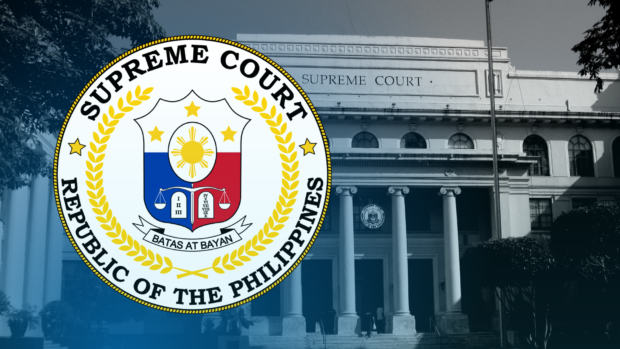MANILA, Philippines — Sexual harassment at work is not about the violation of the victim’s sexuality, “but the abuse of power and authority by the offender manifested through sexually charged conduct or one filled with sexual undertones,” the Supreme Court (SC) said as it suspended a lawyer for harassing a junior associate.
In a press briefer Wednesday, the SC, through its Public Information Office, said the lawyer was suspended from the practice of law for two years after he was found administratively guilty in a case filed by a junior associate lawyer.
The lawyer, who was not named in the statement, has committed sexually-laced acts ranging from dirty jokes and innuendos to inappropriate personal and intimate questions about her romantic relationships, and sharing about his extramarital sexual conquests, to actual sexual advances.
The lawyer even confessed to the junior associate that he would have fallen for her if only they were of the same age range.
“As a senior partner in a law firm, the respondent ought to know that junior associates–whose legal careers are just starting–would naturally look up to him. They would place their trust in him by seeking mentorship and professional growth under his wing,” the SC said through Associate Justice Antonio T. Kho Jr.
“Unfortunately for the complainant, respondent breached such trust by exhibiting reprehensible conduct constituting sexual harassment and even tried to exculpate himself from administrative liability by claiming that he was just ‘misinterpreted’ and/or ‘taken out of context,’” the SC said.
It added that the acts of the senior lawyer had created a hostile environment and that the junior associate sought psychotherapy treatment.
The SC did not consider the apology of the lawyer.
In imposing the penalty of a two-year suspension from the practice of law, the SC has taken into consideration the lawyer’s nature, the complained acts, frequency of occurrence of the acts, degree of moral influence or ascendancy, and the effect of his actions on her.
“Sexual harassment in the workplace is not about a man taking advantage of a woman by reason of sexual desire–it is about power being exercised by a superior officer over his women subordinates,” the SC said.
The case was decided on April 12, during their summer session in Baguio City.
A copy of the ruling has yet to be released to the public.
READ MORE:
Online sexual abuse of kids increasing
